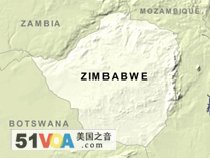02 February 2009
 The Zimbabwe Joint Monitoring and Implementation Committee to oversee a unity government, when it is formed, has been established in Harare. The committee's job will be to ensure that a unity government proceeds according to the political agreement signed last September.
The Zimbabwe Joint Monitoring and Implementation Committee to oversee a unity government, when it is formed, has been established in Harare. The committee's job will be to ensure that a unity government proceeds according to the political agreement signed last September.The Zimbabwe Joint Monitoring and Implementation Committee has three chairmen, one from each of the country's main parties.
They are Elton Mangoma, from the MDC, which has the largest number of seats in parliament, Nicholas Goche from the former ruling ZANU-PF party, and Welshman Ncube from the smaller MDC.
The committee of 12, four from each party, is still looking for an office and funds to establish infrastructure for its task.
The committee is intended to ensure the speedy and full implementation of the September 2008 global political agreement, signed by leaders of all three parties. The panel will attempt to resolve disputes among the parties or government agencies through dialogue, but if it fails the disputes are to be referred to the Southern Africa Development Community and the African Union.
A SADC statement last week said the committee is required to be a catalyst in creating and promoting trust and understanding.
On the streets of Harare, some businessmen and civil-rights workers appeared to be hardly aware the committee has been formed, nor did they know about its mandate. One political analyst said the committee will have to embark upon a publicity campaign to educate the public.
Analysts say the committee's most immediate task will be to obtain the release of more than 30 MDC officials and supporters accused of trying to topple Mr. Mugabe from power.
Another complaint which is certain to be lodged with the committee is the reappointment of Gideon Gono as governor of the central bank. This happened soon after last September's agreement, and the MDC is against the reappointment.
Gono, who is also President Robert Mugabe's personal banker, is blamed by the MDC for aggravating the extraordinary collapse of the economy. The economic failure accelerated after productive white-owned, foreign-currency earning farms were seized and handed over to ZANU-PF loyalists after 2000.
In a monetary policy statement Monday he slashed 12 zeroes from the Zimbabwe dollar, the third time he massively devalued the currency since 2006. Gono also canceled all special dispensations and guarantees signed by the government with platinum producers 20 years ago to keep their earnings off shore.
Gono blames international sanctions for the country's ills, although sanctions against Zimbabwe are targeted against President Mugabe and his associates, such as leaders of his ZANU-PF party, some of its companies, and a handful of other businessmen.
Economists say the real reason Zimbabwe cannot raise money internationally is because it cannot pay its bills. Zimbabwe trades normally with all countries including the West.